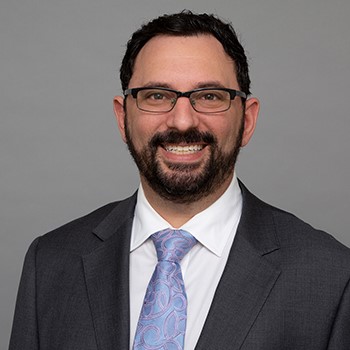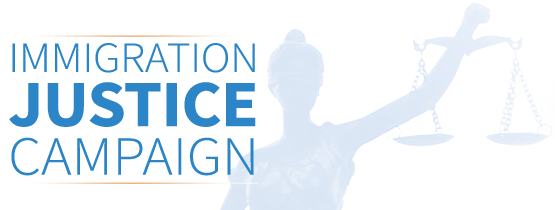Justin Kerner
I’m a litigation associate at Ballard Spahr LLP in southern New Jersey, where I focus on commercial litigation. I’ve been involved in pro bono work since law school: first as a student involved in the Villanova Civil Justice Clinic; and later as a volunteer attorney, taking cases from HIAS, Philadelphia VIP and Volunteer Lawyers for Justice. Pro bono work has been, is, and will remain an important part of my practice. But one pro bono matter stands out from all the others, in terms of its importance to the client and its meaning, to me: my immigration case.
In September 2019, I was part of a small group that traveled to Lumpkin, Georgia, where we worked alongside attorneys from the Southern Poverty Law Center’s Southeast Immigrant Freedom Initiative (SIFI). Those SIFI attorneys tirelessly work with men (and a small population of transgendered women) to conduct intake at the Stewart Detention Center, to provide advice to detainees, and, where possible, to secure bond orders for individual detainee’s release. They also make every effort to pair detainees with volunteer attorneys for merits representation.
While volunteering for SIFI, I met a young man from Venezuela – L.S. L.S. and his then-pregnant wife fled physical attacks and death threats by pro-government forces in their home country. After entering the United States, L.S. was separated from his wife, who moved in with family who lived over 350 miles from where he was detained. As a result, he could not see his wife; could not be with her when she gave birth to their daughter; and was forced to pursue an asylum claim without the resources of a free man or the benefit of counsel.
Although I had no asylum experience, I agreed to take on L.S.’s case. L.S. had already filed an asylum application, and he was scheduled for a hearing only five weeks after we were engaged. Thus, within the span of a month, there was a lot to do. Three great colleagues – Chittam Thakore, Kristen Petagna, and Cynthia Anderson – pitched in. Chittam traveled to Lumpkin, met with L.S., and helped bolster his supporting affidavit. Kristen and I otherwise bolstered L.S.’s asylum application, filed a motion for release under bond, secured bond funding from a nonprofit institution, retained an expert witness, and began preparing for both the bond hearing and the asylum hearing.
In early October, I returned to Lumpkin and presented L.S.’s bond motion to the Court. L.S. sat with me, and his nervousness was palpable. So was mine. Release from detention would mean that L.S. would reunite with his wife and finally meet his infant daughter. It also exponentially improved his chances of securing asylum in this country.
Over the government’s objection – and then, over its request for a $35,000 bond – L.S. won release, with a $3,500 bond that was paid immediately by a nonprofit.
L.S.’s struggle isn’t over. Although he has been released and now resides with his family, his asylum application is still pending, and there’s still more work to be done. But I will never forget how L.S. looked as a translator explained to him that he would leave, or how he looked when I met him at the bus station the next day. He was happy, he was thankful, but above all else – he was free.
The Immigration Justice Campaign supported us along the way. Its representatives graciously fielded our procedural and substantive questions, and they guided us whenever we needed their support. Because of the Campaign’s support, we were able to represent our client effectively, compassionately, and successfully.
I’m beyond grateful for all that the Campaign did for us (and for L.S.), and I have no doubt that we will work together again.

